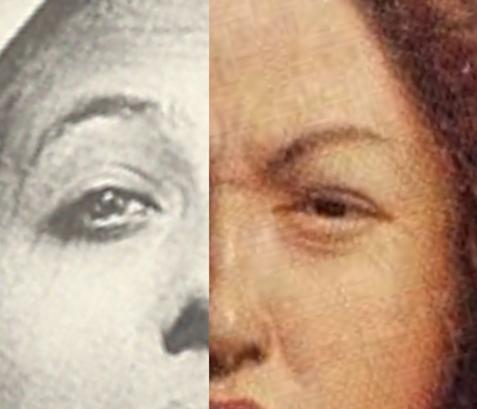
Join us for the seminar "Exophonic writing: resonance and multilingualism" by Christopher Mole (Sorbonne Nouvelle) which will take place in the ‘Krantenzaal’ at the Royal Library of Belgium on Friday 4 April, 14:00-16:00. This seminar is part of the FWO-Tournesol project ‘Mapping performative writing and the page as an expanded field (1966-the present): Experimental, Exophonic and Ecstatic Literatures’.
To register, please click here.
Christopher Mole is a PhD candidate and teaching and research fellow at the Université Sorbonne Nouvelle, Paris. His research focuses on Nancy Huston’s self- translations and specifically on musico-literary intermediality in her novels as a way to explore her transnational and translational aesthetics. He co-founded the “Literary Dislocation(s)” international research network which organises monthly seminars on literary representations of the theme of “dislocations”. He is also a member of the Franco-Belgian research project “Mapping performative writing and the page as an expanded field (1966- the present): experimental, exophonic and ecstatic literatures in transcultural Anglophone spheres”. He is the author of several studies that explore code-switching as a narrative tool in Huston’s translingual novels (Mole 2024), the fractality of translingual writing and musico-literary intermediality (Mole 2024), as well a chapter in the forthcoming volume of Translation Studies and Relational Thinking (published with Palgrave, 2024).
Abstract
In this presentation, I explore the concept of ‘exophony’, or exophonic writing – the act of writing in a language outside of the writer’s original linguistic framework, or ‘mother tongue’. Exophony foregrounds the tension between an inherited voice and a reinvented one, complicating notions of authorial identity, linguistic belonging, and the relationship between language and selfhood. Drawing on Yoko Tawada’s theorisation of exophony (2003) as composing music for a new instrument, this talk examines how translingual writers engage with linguistic transformation as a creative and destabilising force. A key focus is the intersection of exophony and resonance – both in the sonic and textual senses. Through an analysis of Tawada’s notion of the Zwischenraum, or “poetic space” between languages, I consider how linguistic hybridity disrupts the idea of a stable ‘mother tongue’. Indeed, arguably, the mother tongue is never ours in the first place, it always come from outside, imposed on us by regimes of linguistic normativity anchored in sociocultural and political spaces, such as nation-states. In this way, this discussion extends to the ethical implications of rejecting linguistic norms, as seen in author Nancy Huston’s metaphor of the piano and harpsichord, which suggests shifts in voice, harmonics, and register in exophonic writing. Additionally, by engaging with theoretical perspectives from Yasemin Yildiz (2011) and Édouard Glissant (1990; 1997), I explore the implications of linguistic displacement, the revoicing of language beyond ‘ownership’, and the relational dynamics of multilingual expression. My aim is to consider broader questions related to the notion of exophony: how does exophonic writing unsettle fixed linguistic identities? How might it reshape our understanding of translation as more than a transfer of meaning, but as an act of revoicing? And what happens when we shift our focus from reading to listening – does this change how we conceptualise linguistic belonging? By opening up these discussions, I hope to explore the possibilities that exophonic writing presents, not only as a literary technique but as a way of thinking about language, sound, and cultural negotiation.
